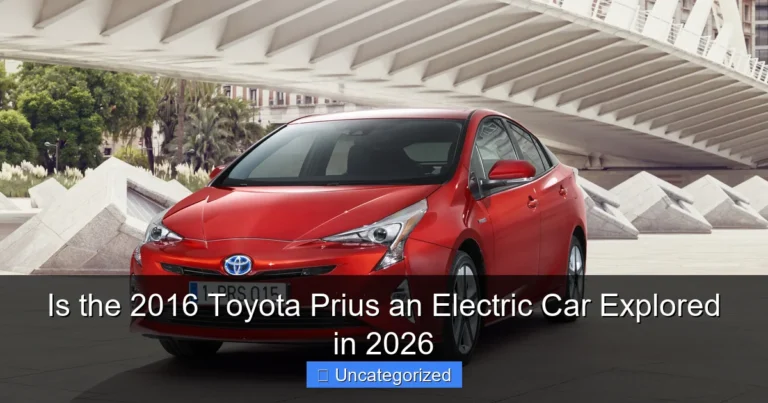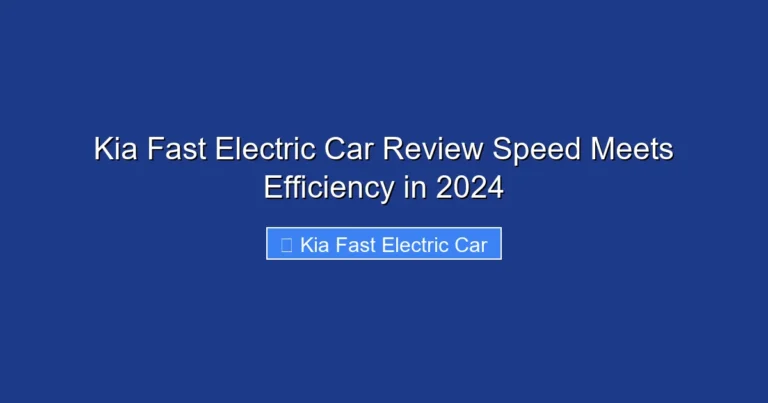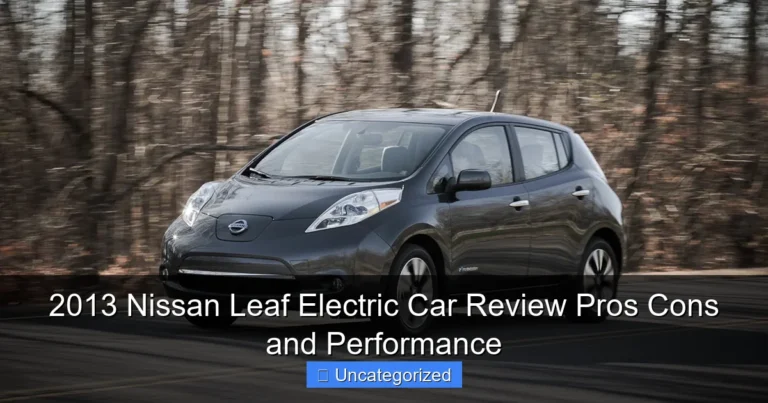Eco-Friendly and Budget-Friendly: Your Ultimate Guide to Buying an Electric Car
Thinking about buying an electric car? With so many different models and features to choose from, it can be an overwhelming decision. But fear not, because we’ve got you covered. In this ultimate guide, we will dive into everything you need to know when buying an electric car.
We’ll discuss the benefits of owning an electric car, what to consider when choosing a model, and how to make the transition to electric driving. By the end, you’ll feel confident and ready to join the electric revolution. So fasten your seatbelt and let’s get started!
Benefits of Owning an Electric Car
Are you considering buying an electric car? There are many benefits to owning an electric car, including cost savings, environmental friendliness, and convenience. Electric cars are typically less expensive to operate and maintain than traditional gas-powered cars, as they require less frequent maintenance and charging at home can be much more affordable than constantly filling up at the gas station. Additionally, electric cars emit zero emissions, making them an environmentally-friendly option for those who want to reduce their carbon footprint.
And with the increasing popularity of electric cars, it’s easier than ever to find charging stations on the go, making long road trips more feasible. So if you’re looking for a guide to buying an electric car, consider the cost savings, environmental benefits, and convenience that come with it.
Lower Fuel Costs
Lower Fuel Costs One of the biggest advantages of owning an electric car is the reduced cost of fuel, or lack thereof. Unlike gasoline-powered cars that require frequent trips to the gas station, electric vehicles can be charged at home overnight or at a charging station while running errands. This translates to significant savings in fuel expenses, especially as gas prices continue to rise.
In fact, studies have shown that the average EV owner can save up to $1,000 annually in fuel costs alone. Imagine what you could do with that extra cash! Plus, with the increasing availability of public charging stations, range anxiety is becoming less of an issue for electric car owners. So not only are you saving money, but you’re also reducing your carbon footprint and contributing to a cleaner, greener planet.

Environmental Impact
When it comes to reducing your carbon footprint, owning an electric car can make a significant impact. Electric cars emit far less pollution than traditional gas-powered cars, which can help reduce air pollution and promote public health. Additionally, since electric cars run on electricity rather than gasoline, not only do they produce less greenhouse gas emissions, but they can also help reduce our dependence on non-renewable fossil fuels.
While electric cars may have higher upfront costs, the long-term savings on gasoline and potential tax incentives can make them a financially sound investment. So not only can owning an electric car benefit the environment, but it can also save you money in the long run.
Types of Electric Cars
If you’re considering buying an electric car, there are several types to choose from. The most common types are battery electric vehicles (BEVs) and plug-in hybrid electric vehicles (PHEVs). BEVs run solely on electric power, while PHEVs have both an electric motor and a gasoline engine.
Another type of electric car is the hybrid electric vehicle (HEV), which uses both gasoline and electric power to run. There are also extended-range electric vehicles (EREVs), which have an electric motor and a generator to charge the battery, and fuel cell electric vehicles (FCEVs), which use hydrogen fuel cells to power the electric motor. Each type of electric car has its own pros and cons, so it’s important to research and determine which one best fits your needs and lifestyle.
Hybrids vs. Battery Electric Vehicles
When it comes to electric cars, there are two main types to consider: hybrids and battery electric vehicles (BEVs). Hybrids have both an electric motor and a gasoline engine, which work together to power the car. On the other hand, BEVs rely solely on an electric motor and rechargeable battery to operate.
So which one is better? It really depends on your individual needs and preferences. Hybrid cars are great for those who want the benefits of electric driving without the worry of running out of battery power. They can travel long distances without needing to be charged, making them ideal for road trips and longer commutes.
BEVs, on the other hand, offer zero emissions and a quiet, smooth ride that many drivers prefer. They may not have the same range as hybrids, but they’re great for shorter trips and around-town driving. Ultimately, the decision between a hybrid and BEV comes down to what you need from your car.
Both options offer their own unique set of benefits and drawbacks, so it’s important to research and test drive both before making a decision.
Plug-in Hybrids vs. Electric Vehicles
When it comes to electric cars, there are two main types: plug-in hybrids and electric vehicles. Plug-in hybrids are vehicles that have both an electric motor and a gasoline-powered engine. These vehicles allow you to drive on electricity alone for a certain distance before the gasoline engine kicks in.
Electric vehicles, on the other hand, are fully powered by electricity and have only an electric motor. The main difference between the two is how much driving you can do on electricity alone. Plug-in hybrids can go anywhere from 10 to 50 miles on electricity alone, depending on the model, while electric vehicles have a much longer range, with some models able to go over 300 miles on a single charge.
If you’re someone who has a long commute or frequently takes road trips, an electric vehicle might be a better fit for you. However, if you have a shorter commute and want to reduce your carbon footprint while still having the convenience of a gas-powered engine for longer trips, a plug-in hybrid might be a better choice. Ultimately, the decision comes down to your personal needs and preferences.
Factors to Consider When Buying an Electric Car
If you’re considering buying an electric car, there are several factors that you should take into account. The first consideration is the type of electric car you want. Do you want a plug-in hybrid, which can operate on both gasoline and electricity, or a fully electric car, which relies entirely on electricity? Another significant factor is range.
How far can the car travel on a single charge, and is it enough for your daily needs? Charging time is also a concern. How long does it take to charge a fully electric vehicle, and are there enough charging stations in your area? Finally, you’ll want to consider the cost of the car and its maintenance requirements. Electric cars often have a higher upfront cost, but they can be more cost-effective in the long run due to lower fuel and maintenance costs.
By taking all of these factors into account, you can make an informed decision and purchase the electric car that’s right for you.
Range and Charging
When considering buying an electric car, there are a few factors related to range and charging that you should keep in mind. The first thing to think about is how far you typically drive on a daily basis and whether the range of the electric car you’re considering meets your needs. Going on road trips or long commutes may require a car that has a longer range, while shorter trips may allow for more flexibility.
Another important factor is the charging infrastructure in your area, as it’s important to know where and how often you’ll have access to charging stations. Some electric cars can be charged at home while others require access to public charging stations. It’s also good to research the charging speed of the vehicle, as some electric cars can charge faster than others depending on the type of charger used.
Overall, it’s important to do thorough research and consider your individual needs when deciding on an electric car.
Electric Car Incentives and Tax Credits
When considering buying an electric car, there are a few factors that you should keep in mind. First and foremost, you may want to look into the various incentives and tax credits available for electric cars in your area. These could help bring down the overall cost of your car and make it a more attractive investment.
Additionally, you’ll want to think about the range of the car – how far you can go on a single charge – and consider whether this meets your daily driving needs. Another factor to keep in mind is the availability of charging stations near you. Finally, you may want to think about the cost of maintenance and repairs for electric cars compared to traditional gas-powered vehicles.
While electric cars may have a higher upfront cost, they often require less maintenance over time and can save you money in the long run. Ultimately, when buying an electric car, it’s important to weigh all of these factors and consider what makes the most sense for your unique situation.
Cost Comparisons: Electric vs. Gasoline Cars
When it comes to purchasing an electric car, there are several factors to consider before making the investment. First, you need to determine if your lifestyle and driving habits align with the electric car’s limitations. Depending on the model, range anxiety, or the concern of running out of battery power before reaching your destination, may be a significant issue for some.
Additionally, you need to consider the charging infrastructure in your area and whether it will be convenient for you to charge your vehicle regularly. The cost of an electric car is another crucial factor to evaluate, as they tend to have a higher purchase price than their gasoline counterparts. However, electric cars can save you money in the long term when it comes to fuel and maintenance costs.
Operating an electric vehicle is generally cheaper as electricity is less expensive than gasoline, and electric cars typically have fewer mechanical components that require maintenance. Finally, you should also consider the environmental impact of owning an electric car. An electric car produces far fewer emissions than a gas-powered vehicle, making it a more sustainable and eco-friendly option.
By weighing these factors, you can determine if an electric car is the right choice for you.
Top Electric Car Models on the Market Today
If you’re in the market for an electric car but aren’t sure which one to choose, there are several top models to consider. One popular option is the Tesla Model 3, which boasts impressive range, speed, and features for its price point. Another great choice is the Nissan Leaf, which offers a smooth and quiet ride, plenty of cargo space, and advanced safety technology.
For a more luxury option, the Audi e-tron is a high-end SUV with sporty handling, fast charging, and a luxurious interior. And for those who need a bit more space, the Kia Niro EV is a spacious crossover with excellent efficiency and range. When deciding which electric car to buy, it’s important to consider factors such as range, price, performance, and features, along with your own lifestyle and needs.
With so many great electric car models on the market today, there’s sure to be one that’s right for you.
Conclusion
In conclusion, if you’re looking to reduce your carbon footprint and save money on gas, buying an electric car is the way to go. It’s a no-brainer in terms of long-term savings and environmentally friendly benefits. Plus, think of all the money you’ll save on not having to buy oil changes, spark plugs, and other maintenance costs associated with gas-powered vehicles.
So, join the electric car revolution and enjoy the ride towards a greener future!”
FAQs
What are the benefits of buying an electric car?
The benefits of buying an electric car include reduced air pollution, lower fuel costs, and a quieter driving experience.
How do I know if an electric car is right for me?
Consider factors such as your budget, driving habits, and access to charging stations when deciding if an electric car is right for you.
How does charging an electric car work?
Electric cars can be charged at home using a charging unit, or at public charging stations. Some electric cars also offer fast charging options.
How far can I drive on a single charge in an electric car?
Range varies by model, but most electric cars can travel around 100-250 miles on a single charge. Factors such as driving conditions and temperature can also impact range.
Are electric cars more expensive than gas-powered cars?
Electric cars can be more expensive upfront than gas-powered cars, but offer savings on fuel and maintenance costs in the long run. Additionally, incentives such as tax credits may be available to offset costs.






